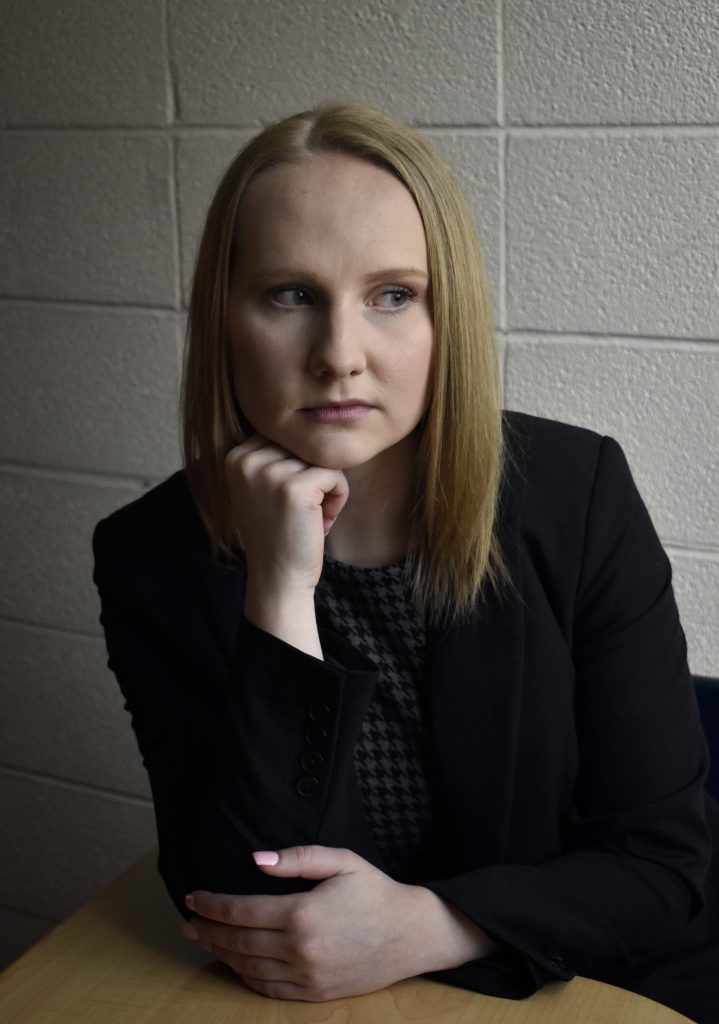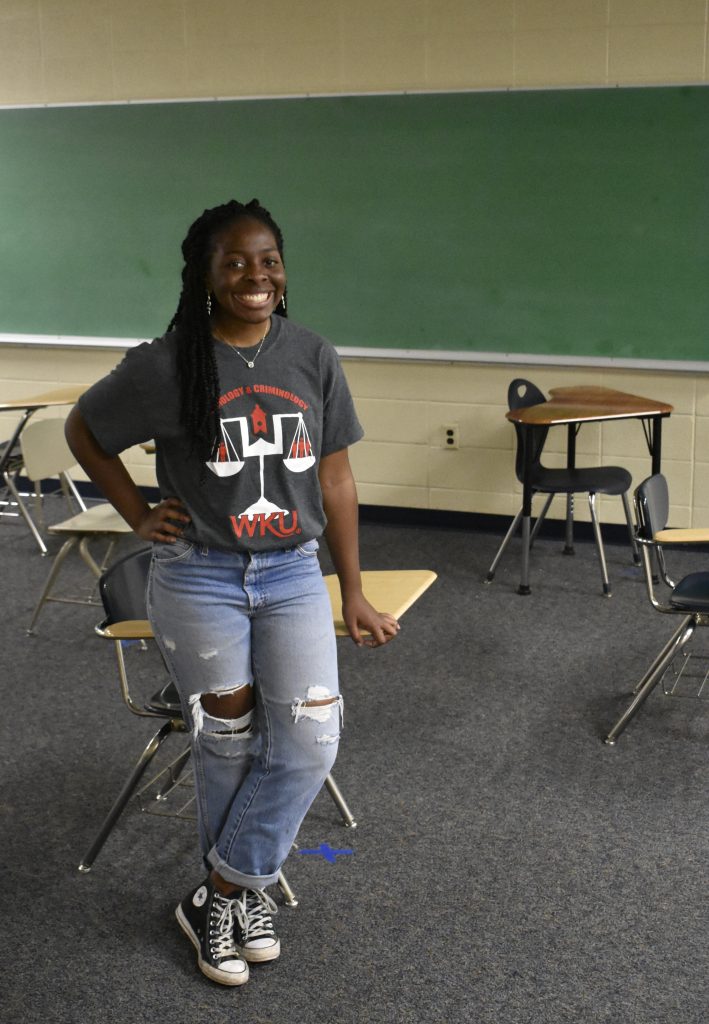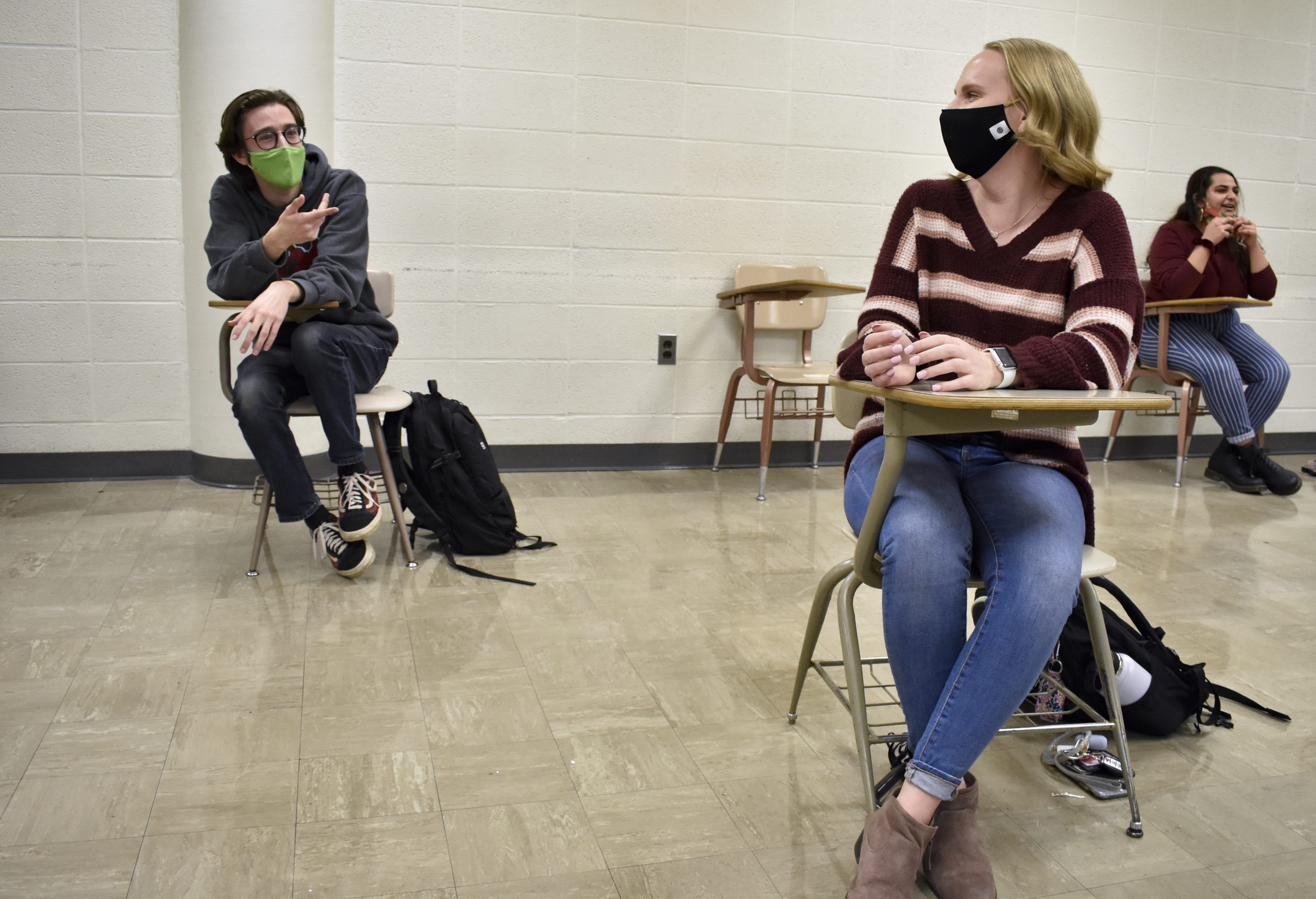Ashlee Gilbert watched as her mock trial teammates received criticism from their adviser. He saved Gilbert, the only woman on WKU’s team, for last.
“You have the most potential out of anyone in this room, but I don’t like your tone,” he told her. “I think you’re too assertive, and I think that’s something you could work on.”
This was the first time someone had commented on the way Gilbert presented herself in the courtroom, she said.
Gilbert, a criminology senior from Auburn, Kentucky, said her goal is to go to law school, become a defense attorney and, eventually, a prosecutor.
Women make up more than 50% of the U.S. workforce, according to a 2014 report by the Women’s Bureau in the Department of Labor.
However, the same report shows that women represent less than 20% of patrol officers, first-line police supervisors and information security analysts. Likewise, they represent less than 25% of security guards, detectives and criminal investigators. Women represent 37.4% of lawyers in the criminal justice field, according to a 2020 report from the Statista Research Department.
Gilbert sees being a woman in the criminal justice field as an opportunity to disprove certain stereotypes. She said she strives to be successful in a field that can sometimes forget about women.
“There are certain stereotypes that women can’t be dominant, can’t be assertive and can’t perform in some of the ways that men can,” Gilbert said. “I think a natural challenge will be to prove those stereotypes wrong.”
She currently works as a peer mentor in WKU’s department of criminology and sociology, captains WKU’s mock trial team and works at a prosecutor’s office in Bowling Green, shadowing attorney Elizabeth Teel.
Gilbert said working with Teel allows her to witness courtroom proceedings like divorce hearings and jail arraignments.







